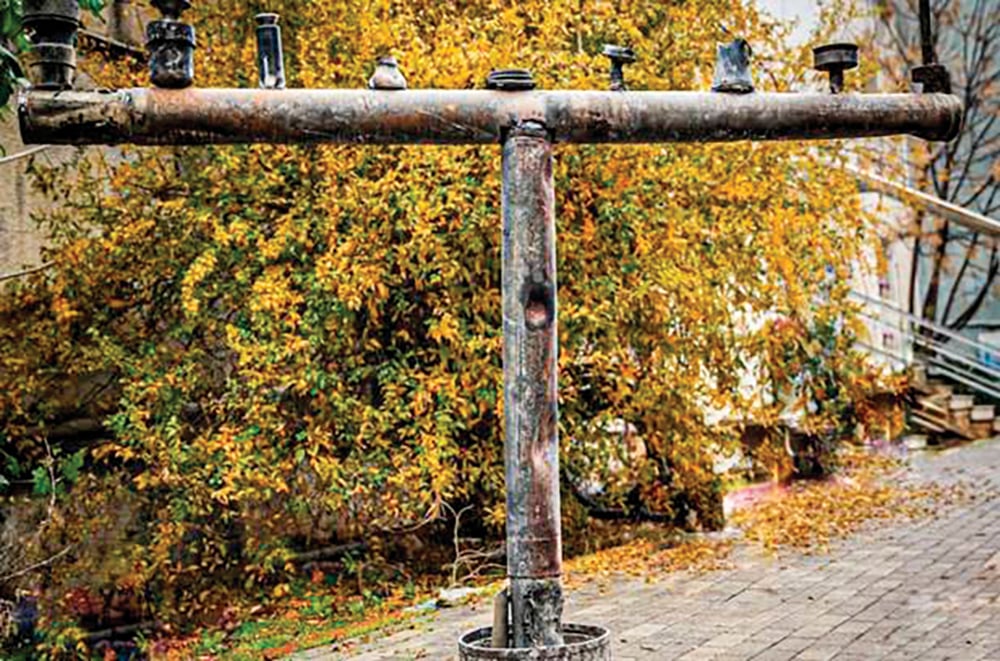
How incongruous for a column for Parshat Shoftim to address challenging authority. After all, in Parashat Shoftim we are commanded to listen to whatever the beit din instructs and “not deviate either to the right or left.” We must listen, Rashi explains, even when the beit din tells us right is left and left is right.
Nonetheless, there are times when we may, nay must, challenge rabbinic authority. There are times when failing to challenge rabbinic authority is itself sinful (see Horiyot 2a).
A positive example occurred his summer at a summer camp where one of the Torah Academy of Bergen County students worked this past summer. In the kitchen where the student worked, he felt that despite having a stellar hashgacha, the protocols for separating milk and meat were a bit behind the curve. He contacted me and I in turn raised the issue with the certifying kashrut agency.
The kashrut supervisor investigated the issue, and lo and behold an upgrade in the standards was in order and immediately implemented. Had the talmid merely assumed that the mashgiach had everything under control, the kashrut at the program would not have been at its best standard. The policy of if you see something then say something certainly worked out very well in this situation.
A similar situation occurred when reviewing an eruv in the Southern United States this past summer. While inspecting a shrub-covered lechi I declared that the lechi was properly positioned beneath the wire. One of the much younger rabbis present said he thought the lechi was not under the wire but he submits to my authority.
I responded that my authority should not be invoked in such circumstances. I advised that we devote more time to examining the locale. Lo and behold, after a careful inspection it turned out that the younger rabbi was correct and that the situation needed correction.
Proper management permits and encourages creating an environment where younger and less-experienced staff members feel comfortable to challenge senior staff. The well-known book “Start Up Nation” reports that part of the Challenger explosion was due to the failure to create such an environment. This book reports how members of the Challenger junior management were aware of the problems that caused the terrible tragedy but were intimidated to raise the issue with their superiors. They assumed that the higher ups were aware of the issue and that it did not pose a threat to the mission.
By contrast, Israeli firms, “Start Up Nation” explains, create a culture where everyone is encouraged to say something if they see something that they perceive to be wrong. Similarly, Rav Aryeh Lebowitz of Yeshiva University reports that OU Kosher is an environment where mashgichim are encouraged to speak up if they believe a policy seems not to be working in practice. Rav Lebowitz explains that the strength of OU Kosher lies not only in its senior poskim but in its dozens of middle management rabbanim (rabbinic coordinators) and hundreds of rabbinic field representatives (mashgichim). All work together as a team to ensure that the best kashrut practices are in place.
I noticed an example in the opposite direction when visiting a Conservative Jewish administered camp eruv in Europe in the summer of 2014. A young Conservative rabbi wrote an extensive description of the camp eruv. However, he noted one section of the area that relied upon a “tel hamitlaket,” a sloping hill (a sloping hill at an angle of a minimum 25 degrees constitutes a viable halachic wall and can serve as a legitimate component of an eruv). He wrote that while it seemed to him that the area was insufficiently steep to constitute a valid tel hamitlaket, he submitted to the authority of a revered leading Conservative who had in years past surveyed the area and deemed it a proper tel hamitlaket.
During my visit (there was a request to bring the eruv under Orthodox auspices), I asked to first view this section. I measured the area in question and not surprisingly I found it to be an inadequate tel hamitlaket. By failing to examine the area himself, the young Conservative rabbi repeated the fatal mistake committed by the Challenger’s support team.
Of course, proper respect must be shown when calling rabbinic authority into question. In addition, if a panel of competent rabbanim overrules a challenge, the decision must be respected even if it appears to us that the panel is telling us that right is left and left is right, as per the dictum set forth in Parshat Shoftim. As with anything in life, proper balance is in order. Rav Nahman of Breslov famously teaches, “Kol haolam kulo gesher tzar me’od,” the entire world is a very narrow bridge. In other words, life is a big and delicate balancing act. In our case the trick is to respect authority but yet know when and how to properly challenge authority.
By Rabbi Haim Jachter
Rabbi Haim Jachter is the spiritual leader of Congregation Shaarei Orah, the Sephardic Congregation of Teaneck. He also serves as a rebbe at Torah Academy of Bergen County and a dayan on the Beth Din of Elizabeth.









